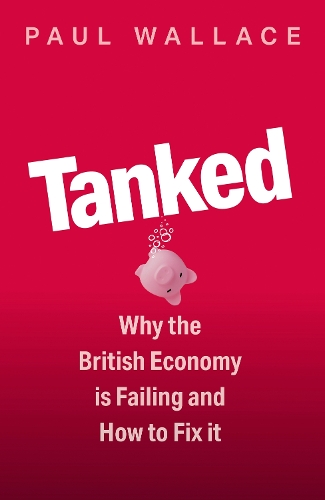
Tanked: Why the British Economy is Failing and How to Fix It
(Hardback)
Available Formats
Publishing Details
Tanked: Why the British Economy is Failing and How to Fix It
By (Author) Paul Wallace
Little, Brown Book Group
Little, Brown
26th November 2024
29th August 2024
United Kingdom
Classifications
Tertiary Education
Non Fiction
330.941
Physical Properties
Hardback
272
Width 160mm, Height 236mm, Spine 28mm
480g
Description
In the autumn of 2022, Liz Truss took Britain on a journey into economic la-la land and comprehensively tanked the economy. The result Higher mortgages and rents, high inflation, debt at an eye-watering 2.7 trillion and a sluggish economy rapidly falling behind our (ex-)European partners. As economic journalist Paul Wallace argues in this incisive, expert and accessible book, this was the low point of a once supercharged economy that has over the last 15 years not recovered from the financial crash of 2008.
Written over ten chapters tackling the most important issues (Brexit, debt, the City, immigration, manufacturing, levelling up, public services) Wallace asks in clear, jargon-free prose what the problems are, and what we can do to solve them. He offers a ten-point plan to get our economy back and track, building on its most resilient aspects. Part-primer, part passionate argument, Tanked is the perfect book for anyone who wants to know their quantitive easing from their bond market, and to understand the how Britain devalued itself.Author Bio
Paul Wallace is an economic and financial journalist. Previously, he has been Britain economics editor and European economics editor at The Economist, and before that economics editor at the Independent. He has also been a columnist for Reuters. He is the author, most recently, of The Euro Experiment, published by Cambridge University Press in 2015 and before that wrote Agequake: Riding the Demographic Rollercoaster Shaking Business, Finance and our World and co-authored The Square Mile, based on a television series about the City of London he produced for ITV. He has been a council member of the Royal Economic Society and a visiting fellow at the National Institute of Economic and Social Research. He has degrees from Cambridge University (MA) and the London School of Economics (MPhil).
